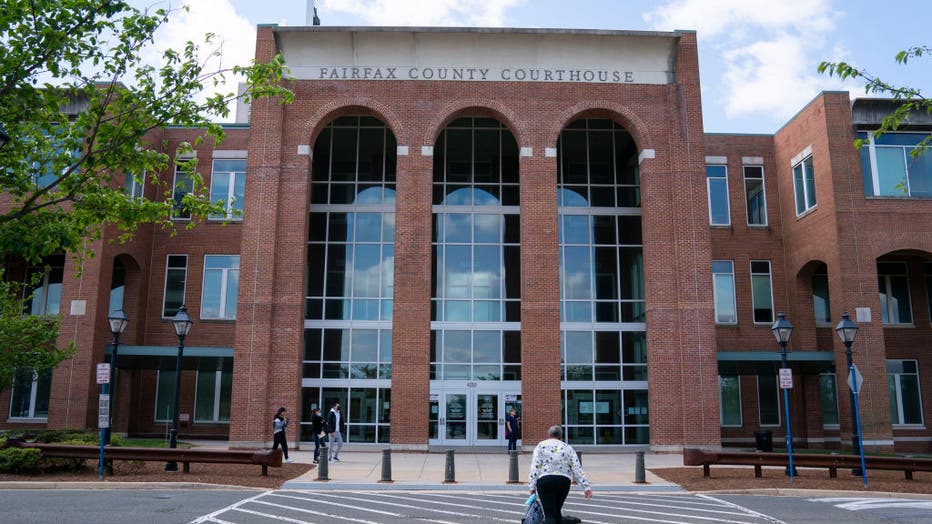Virginia judge uses slavery law to rule frozen embryos are property

What happens when divorcing couples fight over embryos?
Attorney Natalia Wilson joins Good Day DC to break down what happens when couples are divorcing and start to fight for custody of embryos.
FAIRFAX, Va. - Frozen human embryos can legally be considered property, or "chattel," a Virginia judge has ruled, basing his decision in part on a 19th century law governing the treatment of slaves.
The preliminary opinion by Fairfax County Circuit Court Judge Richard Gardiner – delivered in a long-running dispute between a divorced husband and wife – is being criticized by some for wrongly and unnecessarily delving into a time in Virginia history when it was legally permissible to own human beings.
"It's repulsive and it’s morally repugnant," said Susan Crockin, a lawyer and scholar at Georgetown University’s Kennedy Institute of Ethics and an expert in reproductive technology law.
Solomon Ashby, president of the Old Dominion Bar Association, a professional organization made up primarily of African American lawyers, called Gardiner’s ruling troubling.
"I would like to think that the bench and the bar would be seeking more modern precedent," he said.

Gardiner did not return a call to his chambers Wednesday. His decision, issued last month, is not final: He has not yet ruled on other arguments in the case involving Honeyhline and Jason Heidemann, a divorced couple fighting over two frozen embryos that remain in storage.
Honeyhline Heidemann, 45, wants to use the embryos. Jason Heidemann objects.
Initially, Gardiner sided with Jason Heidemann. The law at the heart of the case governs how to divide "goods and chattels." The judge ruled that because embryos could not be bought or sold, they couldn't be considered as such and therefore Honeyhline Heidemann had no recourse under that law to claim custody of them.
But after the ex-wife's lawyer, Adam Kronfeld, asked the judge to reconsider, Gardiner conducted a deep dive into the history of the law. He found that before the Civil War, it also applied to slaves. The judge then researched old rulings that governed custody disputes involving slaves, and said he found parallels that forced him to reconsider whether the law should apply to embryos.
In a separate part of his opinion, Gardiner also said he erred when he initially concluded that human embryos cannot be sold.
"As there is no prohibition on the sale of human embryos, they may be valued and sold, and thus may be considered ‘goods or chattels,’" he wrote.
Crockin said she’s not aware of any other judge in the U.S. who has concluded that human embryos can be bought and sold. She said the trend, if anything, has been to recognize that embryos have to be treated in a more nuanced way than as mere property.

Couple sues over alleged wrong embryo transfer
A couple is suing a Pasadena fertility clinic over allegations of wrongly transferring an embryo in vitro fertilization (IVF) that had a rare and deadly stomach cancer gene, then provided an altered medical record to conceal its alleged mistake.
Ashby said he was baffled that Gardiner felt a need to delve into slavery to answer a question about embryos, even if Virginia case law is thin on how to handle embryo custody questions.
"Hopefully, the jurisprudence will advance in the commonwealth of Virginia such that ... we will no longer see slave codes" cited to justify legal rulings, he said.
Neither of the Heidemanns' lawyers ever raised the slavery issue. They did raise other arguments in support of their cases, however.
Jason Heidemann’s lawyers said allowing his ex-wife to implant the embryos they created when they were married "would force Mr. Heidemann to procreate against his wishes and therefore violate his constitutional right to procreational autonomy."
Honeyhline Heidemann’s lawyer, Kronfeld, argued that Honeyhline’s right to the embryos outweighs her ex-husband’s objections, partly because he would have no legal obligations to be their parent and partly because she has no other options to conceive biological children after undergoing cancer treatments that made her infertile.
Featured
Daycare accused of discriminating against LGBTQ families in Prince George's County
The Rising Generations Early Learning Center sent a letter to families Thursday following FOX 5's report on the actions of its director. Read it here:
Kronfeld also argued that the initial separation agreement the couple signed in 2018 already treated the embryos as property when they concurred — under a subheading titled "Division of Personal Property" — that the embryos would remain in cryogenic storage until a court ordered otherwise.
Gardiner has not yet ruled on the argument over Jason Heidemann's procreational autonomy.


